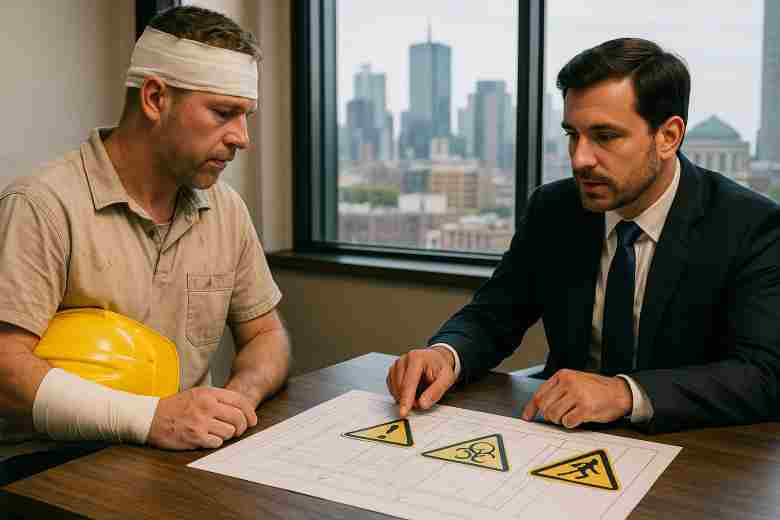Accidents don’t just injure bodies — they disrupt lives. In the blink of an eye, a person can go from living normally to facing medical bills, job loss, emotional trauma, and months (or years) of recovery. Fortunately, accident compensation law exists to offer protection and financial relief to victims and their families. This article will take a close look at how these laws work, who they help, and why they matter more than most people realize — especially during the toughest moments of life.
Why Accident Compensation Law Matters
Imagine getting injured in a car accident because another driver ran a red light. Suddenly, you’re stuck with hospital bills, can’t return to work, and your vehicle is beyond repair. In these situations, you shouldn’t have to shoulder the burden alone — and that’s where accident compensation law becomes a lifeline.
These laws were designed to protect innocent individuals by requiring responsible parties (or their insurers) to pay for the damage they caused. Without these protections, many victims would face financial ruin simply because someone else acted carelessly.

Who Can Benefit From Accident Compensation?
Many people mistakenly think these laws only apply to car crashes, but they’re much broader than that. Below is a breakdown of accident scenarios where compensation law typically applies:
| Accident Type | Eligible Compensation | Who’s Covered |
|---|---|---|
| Car and Motorcycle Accidents | Medical bills, property damage, lost wages | Drivers, passengers, pedestrians |
| Slip and Fall (Premises Liability) | Medical expenses, pain and suffering | Visitors to unsafe properties |
| Workplace Injuries | Wage replacement, rehab, long-term disability | Employees on the job |
| Medical Malpractice | Corrective treatment, emotional distress | Patients harmed by negligent care |
| Product-Related Injuries | Injury-related expenses, punitive damages | Consumers of defective products |
Types of Compensation Available
Victims of accidents may qualify for several types of compensation, depending on the severity of the incident and the lasting impact. Here are the most common categories:
- Economic Damages: Tangible losses like medical bills, property repair costs, and lost income.
- Non-Economic Damages: Pain and suffering, mental anguish, and loss of enjoyment of life.
- Punitive Damages: Awarded when the at-fault party acted recklessly or with malicious intent.
- Wrongful Death Benefits: In fatal accident cases, families can receive compensation for funeral costs, lost financial support, and emotional suffering.
Role of Insurance in Compensation Claims
In most cases, compensation doesn’t come directly out of the at-fault person’s pocket. Instead, it’s their insurance company that pays the claim. However, dealing with insurance companies is not always simple.
Insurers are businesses — their goal is to minimize payouts. That’s why many accident victims face the following tactics:
- Lowball settlement offers
- Delays in processing claims
- Requests for unnecessary documentation
- Denials without clear explanations
Because of these practices, hiring a skilled personal injury lawyer can be crucial. An experienced attorney knows how to handle insurers, calculate a fair settlement, and build a strong legal case when needed.
How Long Do You Have to File a Claim?
Each state in the U.S. has a time limit known as the “statute of limitations.” This is the legal deadline for filing your claim, and it varies depending on the type of accident and where it occurred. Missing this deadline usually means losing your right to compensation.
Here are some general guidelines:
| Accident Type | Typical Filing Deadline |
|---|---|
| Motor Vehicle Accidents | 2 to 3 years |
| Slip and Fall Injuries | 2 years |
| Workplace Accidents | 30–90 days to notify employer, 1–2 years to file |
| Medical Malpractice | 1 to 3 years (sometimes from date of discovery) |
It’s critical to consult a lawyer promptly after your accident so you don’t miss these important legal windows.
Family Members Can Also Be Affected
Accident compensation laws don’t only apply to the injured person. In cases where someone is severely injured or dies, their family members can also be entitled to financial compensation. For example:
- A spouse may receive damages for loss of companionship or consortium.
- Children may be compensated for the loss of parental care or support.
- Parents of minors may be able to file claims for medical bills and emotional distress.
These laws acknowledge that an accident affects more than just the direct victim — it often causes a ripple effect of emotional and financial hardship across an entire household.
What You Should Do After an Accident
The steps you take immediately after an accident can make a big difference in the outcome of your compensation claim. Here’s a checklist of what to do:
- Seek medical attention, even if injuries seem minor.
- Report the accident to authorities (police, employer, property owner, etc.).
- Take photos of the scene, injuries, and any damage.
- Collect witness contact information.
- Keep all medical records and receipts.
- Do not give a recorded statement to an insurance company without legal advice.
Conclusion
Accident compensation law is more than just a legal formality — it’s a crucial safeguard that helps victims and families survive some of life’s most difficult challenges. Whether you were injured at work, in a car crash, or due to unsafe property conditions, the law is designed to hold the responsible party accountable and provide financial relief. The key is to act quickly, understand your rights, and get professional help when needed. By doing so, you give yourself the best chance to recover — physically, emotionally, and financially